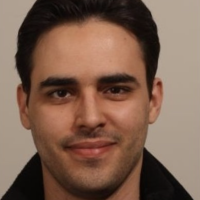LASHEEN A.
LASHEEN A.
Lecturer
Alexandre Lasheen is an accelerator physicist who has dedicated his professional career to studying beam dynamics with collective effects and the operation of RF systems in particle accelerators. He has excelled in the field of accelerator physics, working at prestigious institutions such as CERN, where he has held different positions since 2014.
In 2012, he obtained a license in physics from the University Pierre et Marie Curie, followed by a master's degree in Applied Physics and Mechanics from the University Paris-Sud with the highest honours. In 2013, he completed a Master 2 internship at CEA Saclay DSM/IRFU/SACM/LEDA, where he estimated the distribution of a beam in phase space from profile measurements. He continued his studies in accelerator physics, completing his PhD at CERN and University Paris‑Saclay (PHENIICS Doctoral School) in 2017. His thesis focused on the beam measurement of the longitudinal impedance and its effect on beam stability in the CERN SPS.
He has worked on several projects during his career, including the LHC Injector Upgrade Project (LIU), where he contributed to improving the LHC injector chain's performance by a factor of two in beam intensity, meeting the requirements of the HL‑LHC project. He was also the Chair of the LIU PS Commissioning Working Group, responsible for organising and restarting the PS after the Long Shutdown 2 (2019‑2020), including all LIU hardware.
Since 2018, he has been a Staff Accelerator Physicist at CERN SY‑RF‑BR, where he is the Machine Coordinator of the CERN Proton Synchrotron and provides RF systems expert support. He is also the Chair of the PS‑SPS Transfer Study Working Group and co‑chair of the PS Machine Performance Coordination Meeting. In this position, he has conducted longitudinal beam dynamics studies with collective effects, single and multi‑bunch beam instabilities, longitudinal beam transfer, and beam manipulations in transient beam loading.
Moreover, he has supervised students and post‑doctoral fellows, published numerous research papers, and presented his work at international conferences. He is an experienced lecturer at the CERN Accelerator School and the Joint Universities Accelerator School.
He is highly skilled in computing, with extensive experience in numerical simulations, including parallelisation and machine learning, using programming languages such as Python, C/C++, Matlab, and Mathematica. He is also familiar with general computing tools such as Git, Latex, UNIX, Microsoft Office, and web development.
In conclusion, his contributions to the field of accelerator physics have been invaluable. His expertise in beam dynamics with collective effects and the operation of RF systems in particle accelerators has been widely recognised.

